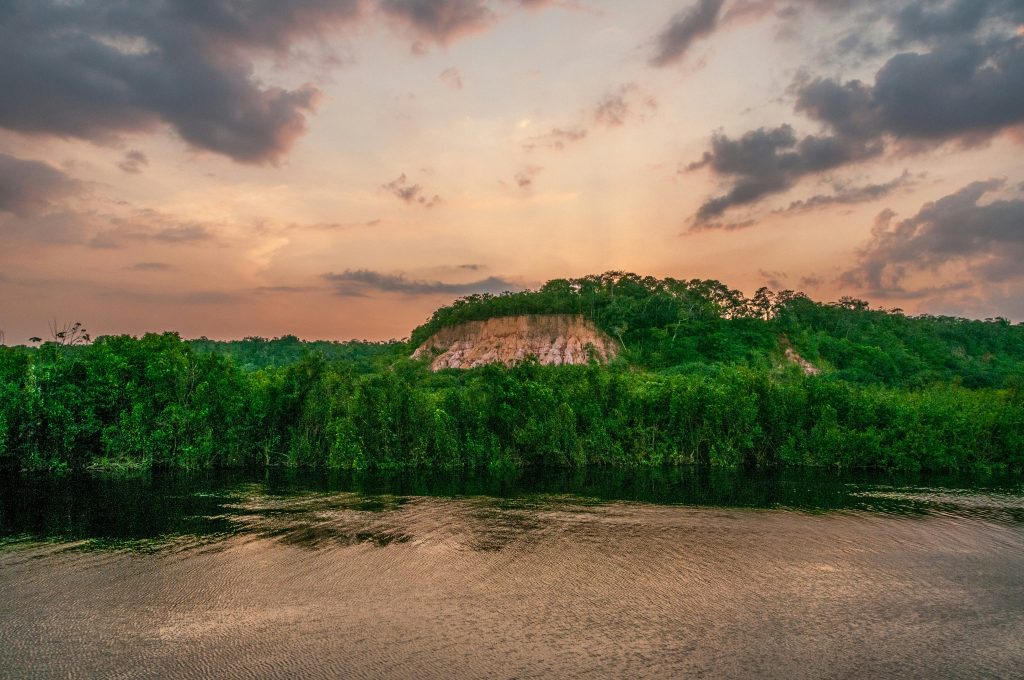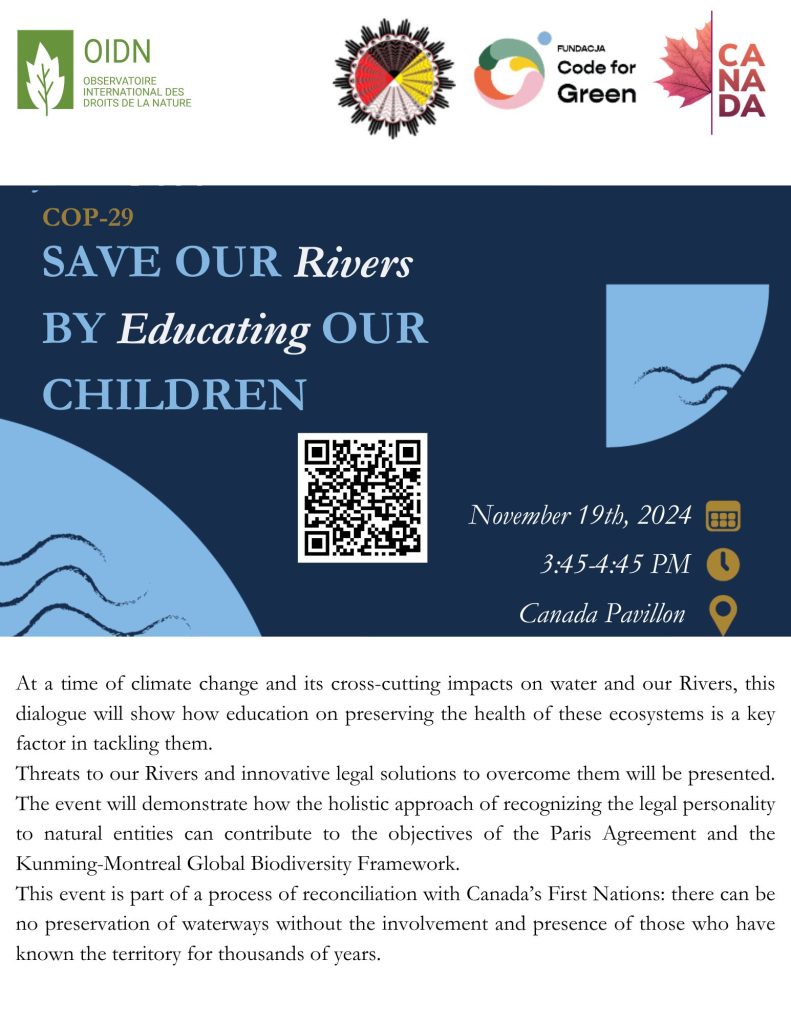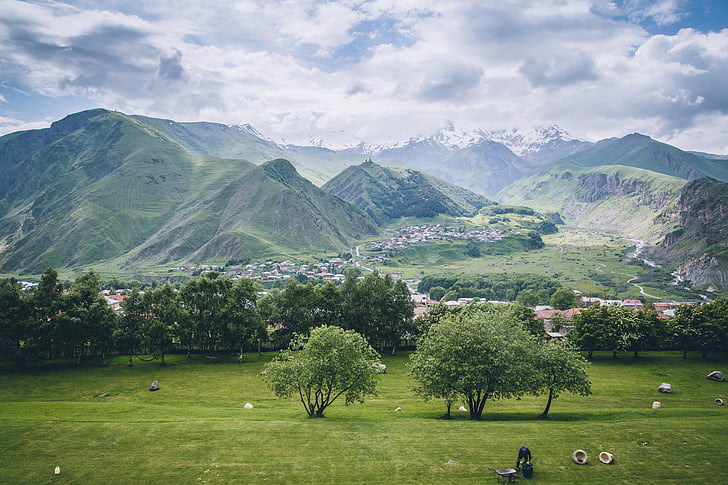The 30th Conference of the Parties to the United Nations Framework Convention on Climate Change (COP30)
The 29th Conference of the Parties to the United Nations Framework Convention on Climate Change (COP29)
The 28th Conference of the Parties to the United Nations Framework Convention on Climate Change (COP28)
Overview of all our activities (UNFCCC)
What is the UNFCCC?
- Main Objective: Stabilize greenhouse gases to protect ecosystems, food security, and sustainable development.
- Differentiated Responsibility: Developed countries must set an example and support others.
- Related Conventions: The UNFCCC is one of the three Rio Conventions, alongside those on biodiversity (CBD) and combating desertification (UNCCD).
- Adaptation and Financing: Financial mechanisms like the Global Environment Facility and the establishment of the Adaptation Committee to assist vulnerable countries.
The 30th Conference of the Parties to the United Nations Framework Convention on Climate Change (COP30)
The 30th Conference of the Parties to the United Nations Framework Convention on Climate Change (COP-30) will be held in Belém, Brazil, from November 10 to 21, 2025. This edition, located in the heart of the Amazon, will focus on concrete solutions and will also emphasize Non-Market-Approaches, integrating eco-centered or Mother Earth-centered actions, where Nature is recognized as a subject of law.
The International Observatory of the Rights of Nature (OIDN) will have the mission during this COP to monitor the implementation of the integration of the rights of Nature into climate commitments. Indeed, recent advisory opinions issued in July 2025 by the International Court of Justice (ICJ) and the Inter-American Court of Human Rights (IACHR) affirmed the differentiated responsibility of States in reducing CO2 emissions and protecting ecosystems, incorporating approaches based on human rights as well as the rights of Nature.
In this context, the Parties will have to propose ambitious national contributions that integrate social justice, forest protection, and the resilience of vulnerable communities, while honoring ancestral knowledge and promoting eco-centered or Mother Earth-centered Actions.
COP30 - Position paper
This position paper presents our analysis and recommendations for COP-30. It aims to contribute to public debate and decision-making processes by proposing courses of action centered on Mother Earth at COP-30, with an emphasis on non-market-based approaches (Article 6.8 of the Paris Agreement). Through this publication, the IONR reaffirms its commitment to an ecocentric approach, recognizing the rights of Nature and integrating these approaches into international financing and support for indigenous communities. The IONR also calls for the creation of a Fund for the Amazon, recognized as a living entity, and urges all public, private, and civil society actors to strengthen their joint efforts to preserve Life.

COP30 - Press release
After two weeks of intense work, COP30 ended with mixed results and the adoption of the Belém Policy Package. The IONR welcomes the progress made on Article 6.8 of the Paris Agreement and the creation of the Tropical Forest Forever Facility. In a historic moment, alongside the Alderville First Nation, we announced the legal recognition of Lake Pemadeshkodeyong/Rice Lake, an essential step for the rights of Nature in Ontario, in the spirit of “Mutirão”.
The 29th Conference of the Parties to the United Nations Framework Convention on Climate Change (COP29)
This year, the Conference of the Parties to the United Nations Framework Convention on Climate Change (COP29) will be held in Baku, Azerbaijan, from November 11 to 22, 2024.
As every year, the primary issue will be accelerating measures to combat the climate crisis. This year, the discussion will mainly focus on the issue of financing, as trillions of dollars are needed for countries to significantly reduce their greenhouse gas emissions and fight the effects of climate change.
Furthermore, Parties will need to present their updated national action plans for 2025, in accordance with the Paris Agreement adopted at COP21 in 2015. These plans should include measures taken by states to limit global warming to 1.5°C above pre-industrial levels.
The 28th Conference of the Parties to the United Nations Framework Convention on Climate Change (COP28)
At the agreement concluded in Dubai, the Parties signed the “beginning of the end” of the fossil fuel era.
From the perspective of the rights of Nature, it marks the first mention of Mother Earth in the provisions regarding non-market approaches promoted under the Paris Agreement.
Indeed, the Parties adopted a decision “recalling the 13th preamble of the Paris Agreement which notes the importance of ensuring the integrity of all ecosystems, including oceans, and the protection of biodiversity, recognized by some cultures as Mother Earth, and which notes the importance for some of the concept of ‘climate justice’ in the action taken to address climate change.
After two weeks of intense work, COP30 ended with mixed results and the adoption of the Belém Policy Package. The IONR welcomes the progress made on Article 6.8 of the Paris Agreement and the creation of the Tropical Forest Forever Facility. In a historic moment, alongside the Alderville First Nation, we announced the legal recognition of Lake Pemadeshkodeyong/Rice Lake, an essential step for the rights of Nature in Ontario, in the spirit of "Mutirão".
See presse release above.


Add Description Here

"Brazil will host and preside over the 30th session of the Conference of the Parties (COP30) to the United Nations Framework Convention on Climate Change (UNFCCC) in November 2025 against the backdrop of several landmarks: COP30 will mark 20 years since the entry into force of the Kyoto Protocol and 10 years of adoption of the Paris Agreement. (...) Now is the time we leave behind inertia, individualism, and irresponsibility to embrace the best versions of ourselves through creativity, solidarity, and perseverance." Letter from the President Designate of COP30/CMP20/CMA7_10 March 2025
At COP 29, a work programme on non-market approaches to the Paris Agreement was adopted, emphasising the importance of ‘Earth-centred actions’. This programme, supported by Bolivia, recognises the importance of eco-centric perspectives in combating climate change and biodiversity loss. The IISD will monitor the progress of these actions and their integration into the financing programme.


COP29 must be an enabling COP, delivering concrete results to translate the commitments made under last year's historic United Arab Emirates consensus into tangible outcomes, in the real world and the real economy." - UNFCCC
For the first time, Mother Earth is mentioned in the provisions regarding non-market approaches promoted under the Paris Agreement.
Cette note de position présente notre analyse et nos recommandations pour la COP-30. Elle vise à contribuer au débat public et aux processus décisionnels en proposant des pistes d’action centrées sur la Terre-Mère à la COP-30, en mettant l’accent sur les approches non fondées sur le marché (article 6.8 de l’Accord de Paris). Par cette publication, l’OIDN réaffirme son engagement en faveur d’une approche écocentrique, reconnaissant les droits de la Nature et intégrant ces approches dans le financement international et le soutien aux communautés autochtones. L’OIDN appelle également à la création d’un Fonds pour l’Amazonie, reconnue comme entité vivante, et exhorte tous les acteurs publics, privés et de la société civile à renforcer leurs efforts communs pour préserver le Vivant.
